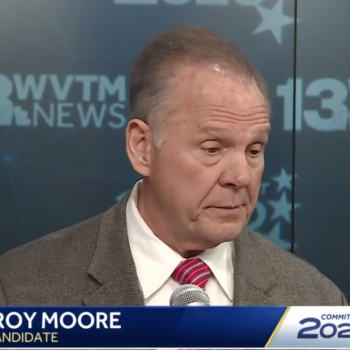A Florida Senate panel has narrowly backed a bill that would leave children without the right to learn about subjects their parents don’t agree with — including the theory of evolution, anthropogenic climate change, and a whole raft of topics under the umbrella of sex education.

In addition to science-based topics, progressive activists point out that the bill could lead to children of white supremacists being pulled from lessons about African American history or the achievements of other cultures, or Holocaust deniers who refuse to let their children learn history lessons that counter their own propaganda.
The woman who filed SB 1634, State Senator Kelli Stargel (R-Lakeland), says the bill does not change any of the rights already afforded to parents under Florida law; it just highlights them and requires schools to incorporate explicitly into their policies.
This bill is not a huge departure from what we have in law. It is basically compiling together [in law] for the parents to be involved with their children, that parents know they have rights, and parents have the ability to govern their children in a way they feel is best.
It’s telling that the phrase “parental rights” appears in the bill’s text several times, while the idea of children’s rights rates not one mention.
On top of allowing parents to restrict their children’s learning based on little more than their own ignorance, the bill also requires educators to give parents information about children’s health and well-being without clearly defining what those terms mean. While provisions exist for situations where keeping confidentiality might be “reasonable and necessary” to protect a child, they lean in the direction of very narrow protections for children.
The wording of the legislation might sound reasonable — of course well-meaning parents should have the information needed to take care of their children’s physical and mental health! — but opponents of the bill point out the untenable situation this creates for school personnel who divulge that their home environments are abusive or unsafe. At-risk children might find themselves unable to safely confide even in their school nurses or guidance counselors.
LGBTQ rights activist Delilah Pierre points out that LGBTQ children will be doubly impacted by the bill: kept from learning about LGBTQ history and identity even as they face the risk that their educators will feel compelled to out them to unsupportive families:
This bill takes away the right of queer and trans kids to even have their own personal identification of themselves, their right to have to tell their parents of their queerness and their transness, in their way, on their own terms. This bill makes it possible for people to erase even more LGBTQ history.
Republican State Senator Dennis Baxley says that the very fact that the bill is subject to debate and discussion shows how far society has “slipped from the reality” that parents can and should control all aspects of their children’s upbringing.
There are a lot of people [who] think the educational model should be different, and that it has the authority to take over and decide what is best for all children [and to] indoctrinate them as the same. I don’t think so. These children do not belong to the state. They belong to these families.
In fact, children are not possessions, and they don’t “belong to” their families or the state. They are individual human beings with rights and interests of their own.
The sad reality is that the children whose parents most want to control what their children learn are the ones who most need access to the alternate perspectives they can get from a comprehensive education. And it is exactly those children whose parents are most likely to take advantage of the rights this bill outlines.
(Image via Shutterstock)




It’s Moving Day for the Friendly ..."
It’s Moving Day for the Friendly ..."
It’s Moving Day for the Friendly ..."
It’s Moving Day for the Friendly ..."